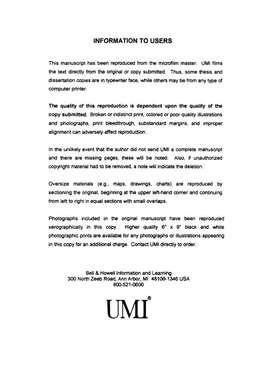| dc.contributor.advisor | Magrath, Jane, | en_US |
| dc.contributor.advisor | Alexander, Reid, | en_US |
| dc.contributor.author | Turon, Charles Thomas. | en_US |
| dc.date.accessioned | 2013-08-16T12:31:10Z | |
| dc.date.available | 2013-08-16T12:31:10Z | |
| dc.date.issued | 2000 | en_US |
| dc.identifier.uri | https://hdl.handle.net/11244/6042 | |
| dc.description.abstract | Research in performing arts medicine supports the concept of piano teachers actively collaborating with physicians and therapists to minimize physiological risks associated with playing the piano. Traditional piano pedagogy curricula do not include training in health sciences which specifically prepares piano teachers to help prevent, detect, or manage performance-related health disorders. The main purpose of this study was to determine this core body of knowledge relating to performance-related health disorders essential for every piano teacher assisting in prevention efforts. Three subsidiary purposes were to identify performing arts physicians who treat pianists, to ascertain whether they agree that piano teachers should be trained to assist in prevention education, and to explore optimal instructional formats for the delivery of such training. | en_US |
| dc.description.abstract | Analysis of the data revealed a strong consensus that piano teacher training should include instruction in health-related topics. Chi-square analysis showed that there was no significant respondent bias due to gender or other demographic characteristics. Five categories of instruction were found to be more essential than any of the others: postural alignment, pacing of practice sessions, recognition of early warning signs, general physical conditioning, and education in risk factors. The formats the specialists recommended most often included a supplement to existing health science or music education courses or seminar/workshops; the trainers they recommended most often were health science teachers and interdisciplinary specialists. | en_US |
| dc.description.abstract | Forty-four performing arts specialists experienced in treating pianists received a questionnaire regarding training from the health sciences they consider to be important supplements to piano teachers' education. They were also asked who is best qualified to train piano teachers in these topics and the most appropriate instructional context for implementing the training. Thirty-six physicians responded, for a response rate of 81.6 percent. The four respondents with the most experience treating pianists were chosen for follow-up telephone interviews. | en_US |
| dc.description.abstract | The major conclusion of this study is that it is possible to isolate a core curriculum essential for piano teachers assisting in the prevention, detection, and management of performance-related health disorders. Recommendations are given regarding modifying the content of current piano pedagogy curricula to include these essential topics. | en_US |
| dc.format.extent | xii, 246 leaves ; | en_US |
| dc.subject | Education, Music. | en_US |
| dc.subject | Overuse injuries. | en_US |
| dc.subject | Health Sciences, Occupational Health and Safety. | en_US |
| dc.subject | Piano Instruction and study. | en_US |
| dc.subject | Musicians Health and hygiene. | en_US |
| dc.subject | Performing arts medicine. | en_US |
| dc.title | Educational prerequisites for piano teachers assisting in the prevention, detection, and management of performance-related health disorders. | en_US |
| dc.type | Thesis | en_US |
| dc.thesis.degree | Ph.D. | en_US |
| dc.thesis.degreeDiscipline | School of Music | en_US |
| dc.note | Advisers: Reid Alexander; Jane Magrath. | en_US |
| dc.note | Source: Dissertation Abstracts International, Volume: 61-09, Section: A, page: 3500. | en_US |
| ou.identifier | (UMI)AAI9988507 | en_US |
| ou.group | Weitzenhoffer Family College of Fine Arts::School of Music | |
